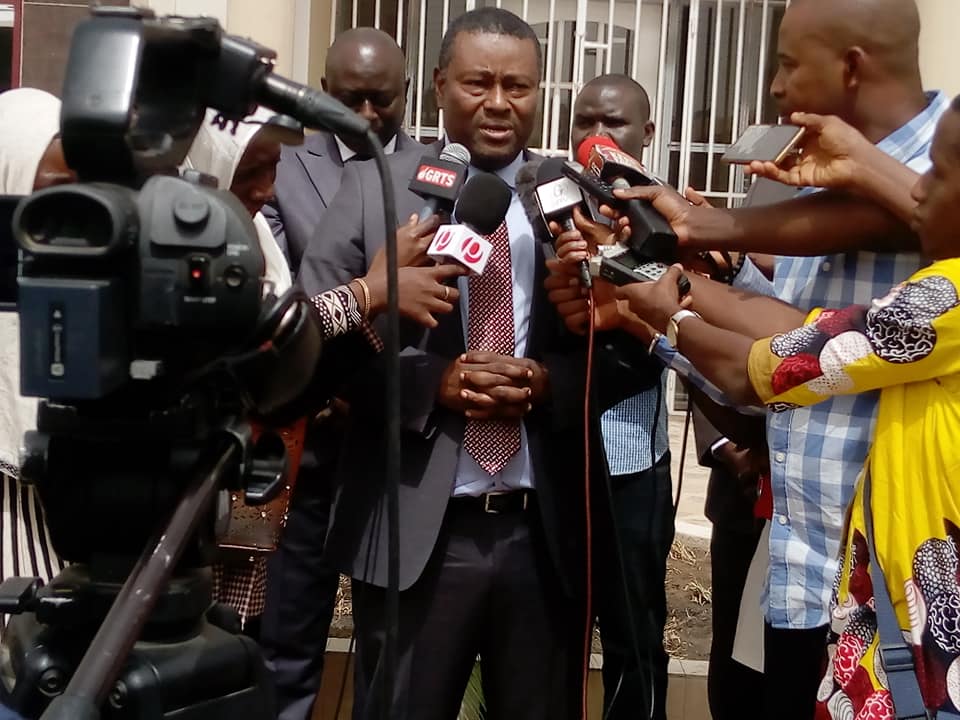 National Human Rights Commission, The Gambia
National Human Rights Commission, The Gambia
PRESS RELEASE
NHRC/PR/25022020/(07)
20 March 2020
Recommendations to Support the Monitoring, Prevention and Control of COVID-19 in The Gambia.
On 30th January 2020, the World Health Organization (WHO) declared Covid-19, popularly referred to as the ‘Conoravirus’, as a pandemic and therefore an international public health emergency. On 17th March 2020, the President of the Republic of The Gambia, in a televised address to the nation, enumerated the steps and measures his Government is taking to protect the populace from Covid-19. He also suspended all public gatherings in the country. On the same day, the Minister of Health informed the nation about the existence of one (1) confirmed case of Covid-19 who is currently receiving treatment.
The National Human Rights Commission (NHRC) is equally concerned about the outbreak of COVID-19 which is affecting people’s rights to health and movement, and children’s right to education in particular, as affirmed in the 1997 Constitution of The Gambia and other liberties guaranteed by international and regional human rights instruments to which the Gambia is a party.
NHRC commends the Government, especially the Ministry of Health and its frontline medical and public health personnel, and all other parties for their commitment and dedication to ensuring better and effective public education and preventive campaigns.
While commending the initial first steps in addressing COVID-19, the NHRC urges the
Government to remain vigilant. Prevention starts with effective border and airspace control to ensure that the spread of the virus is contained.
The following are recommendations to all parties for the benefit of surveillance, prevention and
control of COVID-19, including remedial measures:
• The Government to provide adequate resources to the National Health Emergency
Committee, for effective national response to COVID-19. This Committee should be the
coordinating body for all parties or bodies involved in the fight against COVID-19, to
maximize impact and efforts as well to prevent the dissemination of confusing information
to the public.
• To strengthen public safety and confidence, the government should ensure that people
suspected of having the coronavirus or coming from high risk countries are quarantined
as per national or WHO guidelines. Such places of quarantine, however, should meet
standards which preserve human dignity and wellbeing.
For the benefit and general good of the public, the Government should put in place
measures to enforce the banning of public gatherings. However, these measures should
take into account the standards of legality, necessity and proportionality in accordance
with risks being evaluated.
• The Ministry of Health, through its Health Education Directorate, should have in place an
effective public education and awareness strategy or mechanism through which proper
and timely information is communicated to the people, including those with physical
limitations, learning difficulties or other challenges. Misinformation and disinformation must be effectively addressed to prevent a social panic. For this purpose, the Directorate should work with all media houses in the country, to ensure they disseminate the proper and right information to the public.
• The Government to provide adequate essential personal protective equipment (PPE) such as surgical masks, alcohol-base hand sanitizers, and other protective equipment to the Ministry of Health, for quick distribution to medical and public health personnel who are
combating COVID-19.
• The Ministry of Trade to work with the Gambia Chamber of Commerce and Industry and the business community, to ensure the general public is able to have access to and easily purchase essential needs including masks and hand sanitizers at a fair price.
• The Government to provide special social safety net measures targeting low income
earners, people living in rural and remote areas, persons with disabilities, the aged and
elderly and prisoners to ensure that they are able to have access to necessary health
protection equipment, health care and overall protection in a timely manner.
• People should carefully consider information which are received from sources that are not
official or authentic in order not to forward inaccurate information to the general public
causing fear, panic and misunderstanding.
• In addition, the media and citizens should avoid using words or content which can
discriminate against or cause social stigmatization against those who have COVID-19, which can potentially increase the contraction of the virus.
The National Human Rights Commission wishes to encourage all sectors to come together and work collaboratively so that we can jointly win the fight against COVID-19. Through compliance with the law, respect for human rights and dignity and ‘being each other’s keeper, we will
overcome this pandemic.
Signed
Emmanuel Daniel Joof
Chairperson NHRC

